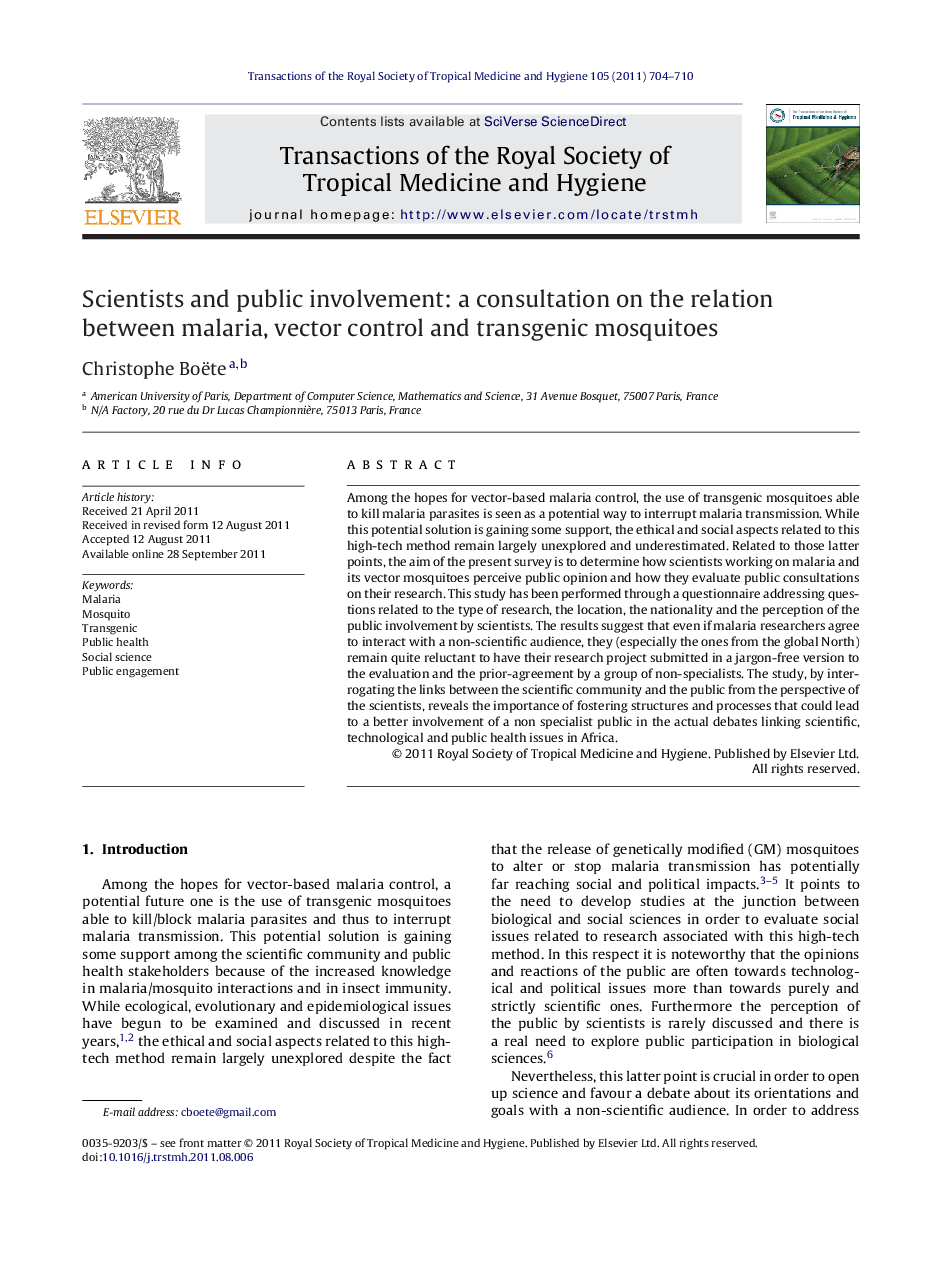| Article ID | Journal | Published Year | Pages | File Type |
|---|---|---|---|---|
| 3420400 | Transactions of the Royal Society of Tropical Medicine and Hygiene | 2011 | 7 Pages |
SummaryAmong the hopes for vector-based malaria control, the use of transgenic mosquitoes able to kill malaria parasites is seen as a potential way to interrupt malaria transmission. While this potential solution is gaining some support, the ethical and social aspects related to this high-tech method remain largely unexplored and underestimated. Related to those latter points, the aim of the present survey is to determine how scientists working on malaria and its vector mosquitoes perceive public opinion and how they evaluate public consultations on their research. This study has been performed through a questionnaire addressing questions related to the type of research, the location, the nationality and the perception of the public involvement by scientists. The results suggest that even if malaria researchers agree to interact with a non-scientific audience, they (especially the ones from the global North) remain quite reluctant to have their research project submitted in a jargon-free version to the evaluation and the prior-agreement by a group of non-specialists. The study, by interrogating the links between the scientific community and the public from the perspective of the scientists, reveals the importance of fostering structures and processes that could lead to a better involvement of a non specialist public in the actual debates linking scientific, technological and public health issues in Africa.
